 Petzlover
Petzlover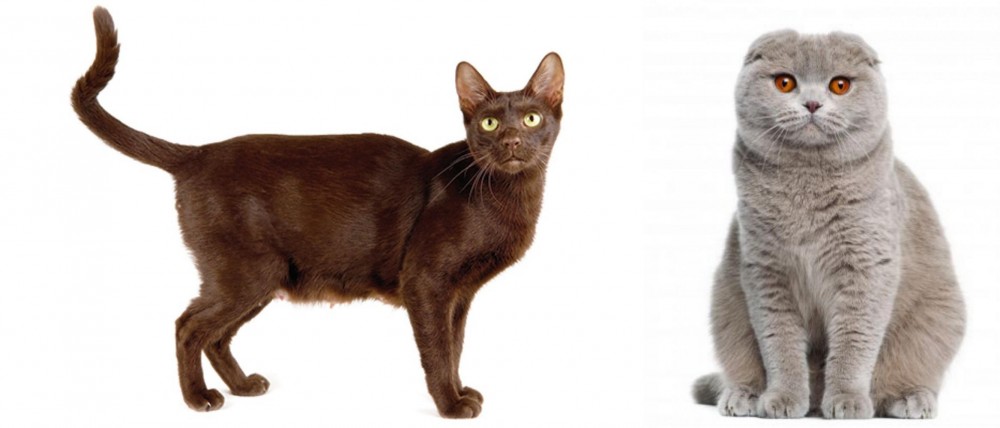 Both Havana Brown and Scottish Fold are originated from United Kingdom. Both Havana Brown and Scottish Fold are of same weight. Both Havana Brown and Scottish Fold has same life span. Both Havana Brown and Scottish Fold has same litter size. Both Havana Brown and Scottish Fold requires Low Maintenance.
Both Havana Brown and Scottish Fold are originated from United Kingdom. Both Havana Brown and Scottish Fold are of same weight. Both Havana Brown and Scottish Fold has same life span. Both Havana Brown and Scottish Fold has same litter size. Both Havana Brown and Scottish Fold requires Low Maintenance.
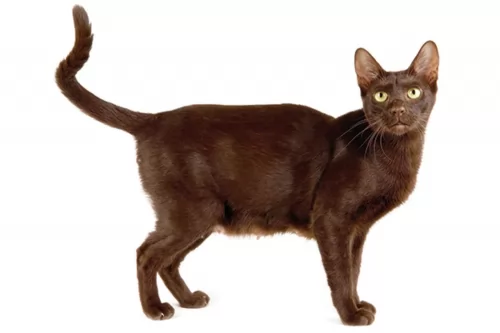 The rare Havana Brown cat seems to be a result of a planned breeding between Siamese and domestic black cats.
The rare Havana Brown cat seems to be a result of a planned breeding between Siamese and domestic black cats.
It was in the 1950s that cat fanciers in the UK became the early breeders. These breeders called themselves the Havana Group. They created the foundation of the modern-day Havana Brown cat.
These breeders managed to produce chocolate shaded kittens which became known as the Chestnut Brown Oriental. Kittens arrived in the US and were crossbred with the Chocolate and Seal Point Siamese to produce chocolate-colored kittens.
In 1964, the Havana Brown was accepted for Championship status by the Cat Fanciers Association.
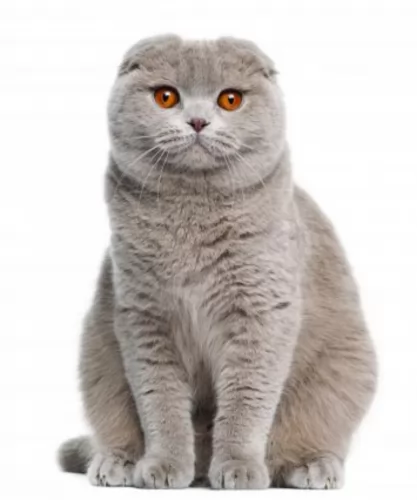 The Scottish Fold is a domestic cat that has an owlish look to it. This is because of the natural dominant-gene mutation that affects cartilage in the cat.
The Scottish Fold is a domestic cat that has an owlish look to it. This is because of the natural dominant-gene mutation that affects cartilage in the cat.
The ears of the Scottish Fold cat folds in a weird way so that the cat has an owl-like look to it. These cats are also known as Highland Fold and Coupari.
It seems that the first Scottish Fold was a white barn cat with the name of Susie. When Susie had kittens, there were a couple of them born with these folded ears. A cat fancier registered the breed in the United Kingdom and in 1966 started a breeding program. These cats were later exported to America.
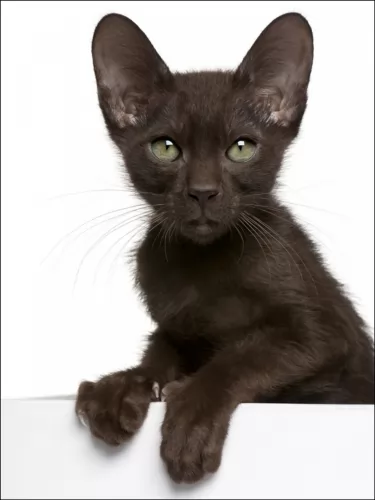 The Havana Brown is a medium-sized cat, being somewhat slender and weighing between 3 and 6kg. The body is long and muscular and the cat has a beautiful brown short to medium-length coat.
The Havana Brown is a medium-sized cat, being somewhat slender and weighing between 3 and 6kg. The body is long and muscular and the cat has a beautiful brown short to medium-length coat.
The coat color is in fact a rich reddish-brown shade. The ears are fairly large and round-shaped and the oval-shaped eyes are a beautiful green.
The Havana Brown is an intelligent, playful, curious cat who enjoys being in the company of its human family. They tend to gravitate towards one favorite family member.
They’re cats that don’t like being left alone for long periods of time. They get on well with children and he also won’t object to becoming friends with the family dog as well.
Friendly though they may be, they also enjoy spending some time on their own. Individual personalities vary but most are playful and talkative.
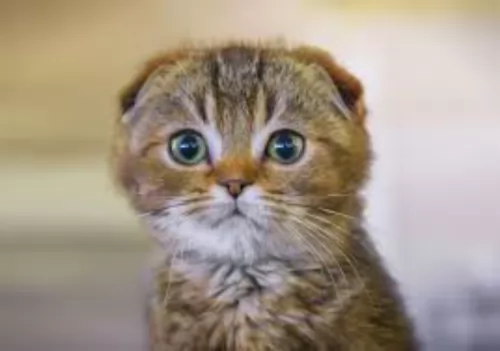 This is a medium-sized cat that weighs between 3 and 6kg. The entire body of this cat is of a rounded nature. The legs are also fairly short.
This is a medium-sized cat that weighs between 3 and 6kg. The entire body of this cat is of a rounded nature. The legs are also fairly short.
All Scottish Fold kittens are born with regular ears but within the first few weeks after birth, the peculiarity with the ears starts to come in. However, some kittens don’t develop folded ears.
The first cats had one fold but with selective breeding, some have 2 or 3 folds or creases so that the ears lie flat against the head. The cat has a round head and large, round eyes. These cats can have a long- or short coat which is thick and soft and the coat can be in a number of colors.
Your Scottish Fold is a good-natured, placid cat and adapts well to different homes and lifestyles. He gets on well with children and pets, becoming just a little bit more attached to the one who feeds him.
He ‘talks’ with quiet meows and purs. They’re playful cats and love to spend time outdoors. A climbing tree and stimulating toys will be a good idea for this energetic feline as he is active and curious. He won’t like being left for long periods though.
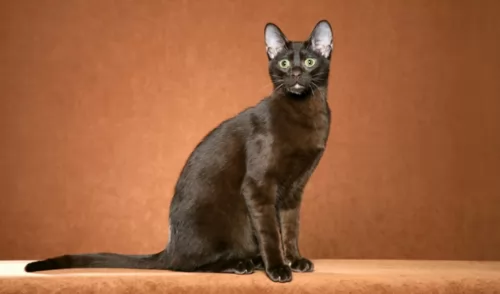 There is a good reason why the Havana Brown cat is so popular. People love the unusually rich brown coat which always has a gleam to it.
There is a good reason why the Havana Brown cat is so popular. People love the unusually rich brown coat which always has a gleam to it.
They also love that this chocolate-colored cat has a wonderful personality and can be a solid companion for humans. So long as you don’t leave him alone for a long time on his own, as that is part of his charm – wanting to be constantly involved with his human family.
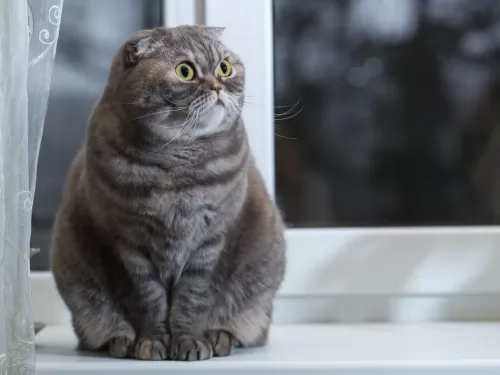 With his big, round eyes, the Scottish Fold has an amicable looking face and he is a friendly calm cat.
With his big, round eyes, the Scottish Fold has an amicable looking face and he is a friendly calm cat.
They love attention and get on well with children and pets who have been trained to be gentle around cats. It is also quite a vocal breed although he 'talks' in a quiet voice.
Because they thrive on pampering and attention, it is better for this cat not to be in a home where the owners are away at work all day.
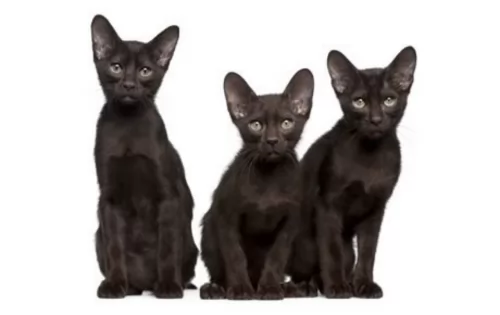 There are no known genetic diseases associated with this breed. They may have a bit of a higher occurrence of gingivitis than other cat breeds, and this thought to come from them having their Siamese ancestry.
There are no known genetic diseases associated with this breed. They may have a bit of a higher occurrence of gingivitis than other cat breeds, and this thought to come from them having their Siamese ancestry.
Beware of bladder stones with your cat which can start at any age. The stones can start off small but can grow larger, rubbing against the bladder walls and resulting in inflammation.
Bladder stones can also lead to blockage of the urethra so that your cat isn’t able to urinate. There are symptoms to indicate your pet may have bladder stones and these can be straining to urinate, painful and little urination, urinary tract infections, and blood in the urine.
This is a time when you want to get your pet to the vet just as soon as possible.
Also, be on the watch for eye infections. Conjunctivitis is one of these to look out for but there are other eye infections your cat can experience. They can come about because of an upper respiratory infection that spreads to the eyes, but they can be caused by any number of things such as bacteria, parasites, and viral infections.
You’ll notice your cat pawing at his eyes and there may even be redness, discharge, and swelling. You vet will be able to treat eye infections with ointments and eye drops.
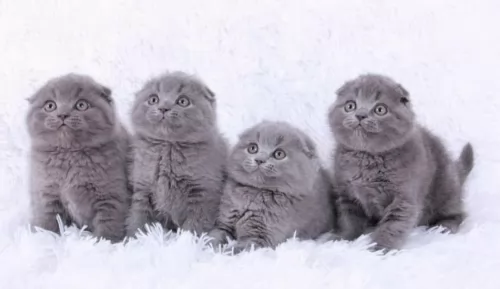 Perhaps one of the things to look out for with these cats is a disease known as osteochondrodysplasia.
Perhaps one of the things to look out for with these cats is a disease known as osteochondrodysplasia.
This is a hereditary disorder of the bones and cartilage. The disease is caused by an autosomal dominant trait and a cat can inherit just one copy of the abnormal gene to have the disease.
Having this disease comes with other health issues and a cat with this disease will be reluctant to jump and may even become lame.
Whenever you suspect anything wrong with your Scottish Fold cat, get him to the vet just as soon as possible.
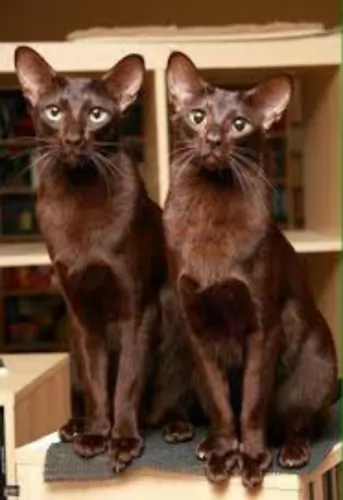 With the cat’s short coat, he experiences little shedding so very little grooming is required. A gentle brush once a week will be enough. These cats love attention and submit easily to a brush and body rub with a soft rubber brush.
With the cat’s short coat, he experiences little shedding so very little grooming is required. A gentle brush once a week will be enough. These cats love attention and submit easily to a brush and body rub with a soft rubber brush.
Check inside the mouth as periodontal disease is a problem with cats. You want to make sure that there aren’t any bad teeth as this can cause a lot of pain.
A vet can also be useful in examining your cat and pinpointing problems.
Check the inside of the ears too because they can become somewhat clogged with wax and dirt. If you don’t want to probe inside the cat’s ears with a cotton ball with warm water and apple cider vinegar, you can take your cat to the vet or to a professional cat groomer.
Keep the litter box of your cat spotlessly clean as these cats are fussy with cleanliness.
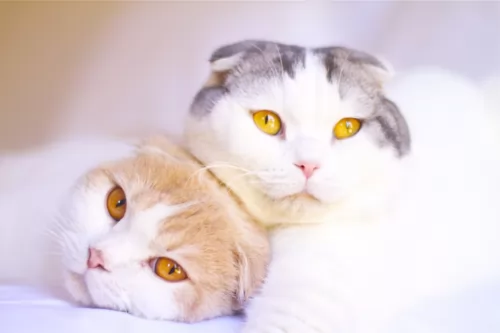 Scottish folds have thick fur and you should at least brush it once a week to get rid of dust and loose hair.
Scottish folds have thick fur and you should at least brush it once a week to get rid of dust and loose hair.
Keep your cat’s nails trimmed otherwise you could get a nasty scratch.
Provide your cat with a climbing tree as well as a scratching post as these are two things – climbing and scratching – that are in the nature of cats.
Provide your Scottish Fold with a litter box and make sure that it is kept clean and that you remove the feces every single day.
Provide your pet with stimulating toys as they are active, intelligent cats.
Protect your cat from fatal cat diseases by having him vaccinated. Your vet will inform you about which vaccines are best. Kittens need vaccines when they are between 6 to 8 weeks old These vaccines come in a series but you don’t have to stress, as the vet will give you a card with the date on which your kitten must return for his next vaccine.
Your Scottish Fold needs to receive the highest quality cat food there is as these foods are balanced with the right amount of vitamins and minerals. When it comes to commercial cat foods, you’ve got choices. You can choose wet or dry food or even combination – something to tempt the fussiest of cats. Cats are carnivores and their food needs to be almost entirely of meat.